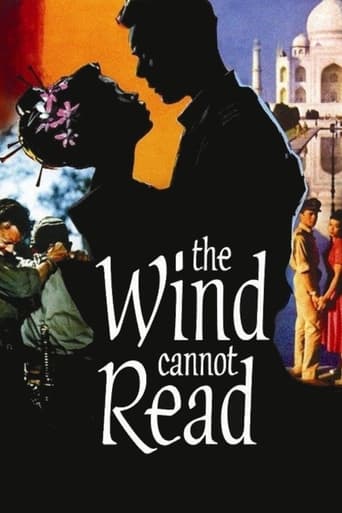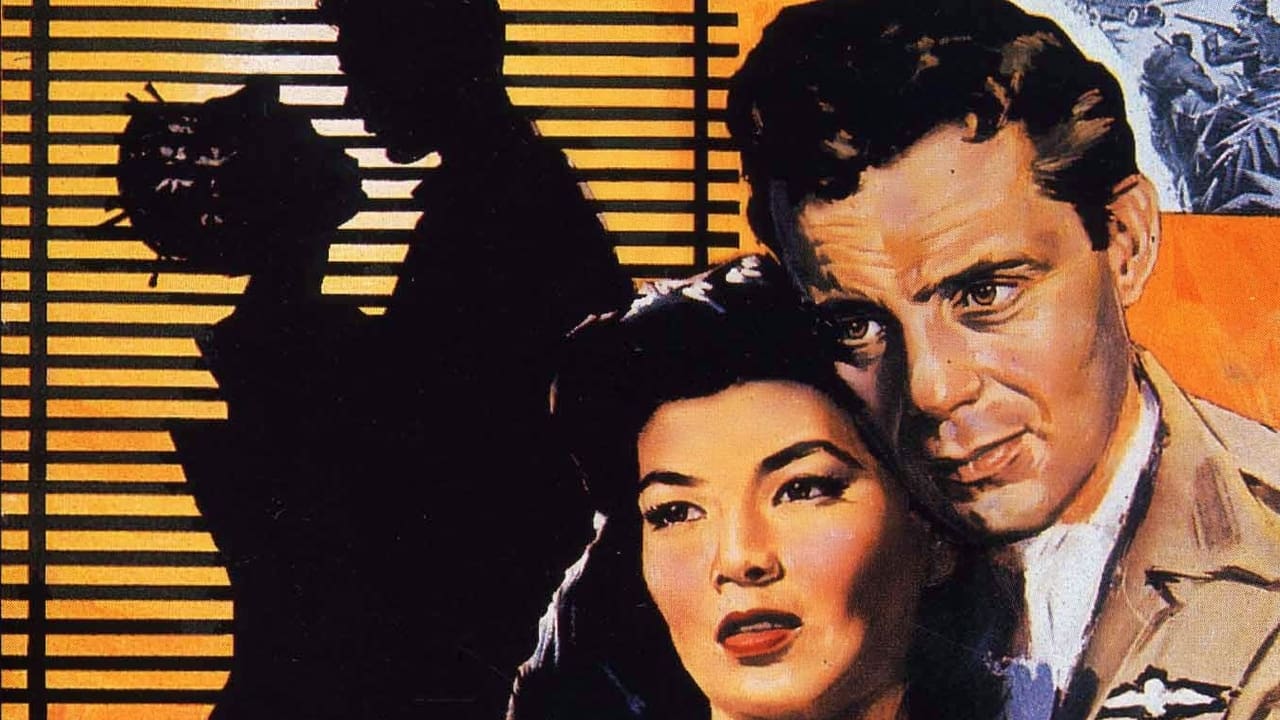malcolmgsw
This was one of the colour films made on location by Rank in the late fifties to get people back into the cinemas.With films like this such a move was bound to fail.The story is risible.Bogarde plays a decorated flying officer,who for no given reason is selected to learn Japanese.This despite having no declared linguistic skills.This school is held in Delhi,not the safest of places in 1943.He falls in love with teacher Yoko Tani who plays the role as if sleepwalkng.He is subsequently sent up to the front,when he is more likely to have been sent home.The ending is clearly aimed at the four hanky brigade.No wonder the Roxy closed after showing this.It died of shame.
mark.waltz
Handsome Dirk Bogarde is a British officer in India preparing for war against the Japanese. He falls in love with the china-doll like Yoko Tani, a Japanese girl who left her homeland with her father in order to save his life after he rebelled against Emperor Hirohito's regime. She is the bashful teacher hired to tutor Bogarde and his colleagues in Japanese, and returns his feelings. Tani is hiding a secret illness and begs Bogarde to let her go, but he refuses. They are married but soon afterwords he goes off to battle and ends up a tortured prisoner of the Japanese. Knowing something is wrong with her, he fights desperately to be freed and get back before it is too late.This variation (and combination) of several tearjerkers seems alright when it comes to the basic storyline, but what destroys it ultimately is the painfully slow pacing and a profound disbelief over the whole situation. The innocent Tani is certainly beautiful, but is far too flower-like in her psyche, so gentle that you fear any hurt would cause all of her metaphoric peddles to fall apart. The Japanese classroom add the only humor as the British officers each ask Tani a question about Japan and she giggles very youth-like at the inquiry and some of the responses. But the pacing proves the saying that "silence is deafening" and can sometimes cause a painfully induced desperation to stay awake.
Robert J. Maxwell
The movie's title, "The Wind Cannot Read," supposedly comes from an old Japanese proverb: "The sign says, 'Do not pick these blossoms,' but the wind cannot read." I'll buy it.The blossom here is the ingratiating Yoko Tani, the picker is Dirk Bogarde, the wind is love, and the sign is Tani's increasingly severe headaches.The film sticks pretty closely to a formula that seemed popular during the 1950s -- "Love Is A Many Splendored Thing," "Sayonara," "South Pacific." A Westerner, usually a service man, and a local Oriental girl fall in love and eventually, usually, something separates them. Well, as Ernest Hemingway observed, every love story is a tragedy if followed long enough because one of the lovers dies.Depending on what distracting additional ingredient are added to the formula, it's also known as "soap opera." In this instance, Dirk Bogarde and a couple of friends are RAF officers during World War II, assigned to a school in Delhi where they will learn Japanese while they recuperate from their efforts in combat. The senior officer, also a student, is a little stuffy but that has nothing to do with the plot. I kind of enjoyed the scenes in the classroom where an expressionless instructor has them repeat phrases over and over, until the far more demure, expressive, and colorful Yoko Tani joins the faculty. It reminded me of the classes I took in Mandarin Chinese, until I saw the handwriting on the wall and it was in English.The development of the love affair between Bogarde and Tani is achingly familiar. They visit the Taj Mahal, wander through the local market, giggle while they sample food from street vendors, and stand around watching blind local musicians play tunes in the middle of the street. That's when Yoko Tani first complains that the music is giving her a headache. If you can't divine where that headache is headed -- well, I feel sorry for you. You need to watch more weepers.There are some scenes tacked on penultimately in which Bogarde and the stuffy senior officer are captured and interrogated by the Japanese but they're not very interesting nor well integrated. The fact that both officers know Japanese isn't even worked into the plot.The Brits turned out some superlative war movies during the 1950s. This isn't one of them. It's a generally formulaic love story of two star-crossed and rather alien figures.
dbdumonteil
Dirk Bogarde's parts for Ralph Thomas are not among his best work,by a long shot.Drippy,the precedent user says ,and I can sadly find litlle fault with the opinion expressed.Besides ,the screenplay seems to have been written by chance:in its first part,the movie is pure bad soap opera,in the wake of Logan's superior "Sayonara"(1957) -the Japanese tongue is one of the most difficult in the world,but after a few weeks,Bogarde and his mates can speak in a very workmanlike way-where implausibilities abound (the female teacher is not the least one!).But the second part,which is roughly a war movie, verges on incoherence:there's the obligatory wicked cruel Japanese officer,and the bad news about Bogarde's love comes at the most awkward moment.This leads to an ending à la "a farewell to arms".The "poetic" prologue and epilogue are overkill.This forgotten movie has gone with the wind,which,as anybody knows,cannot read.


 AD
AD





